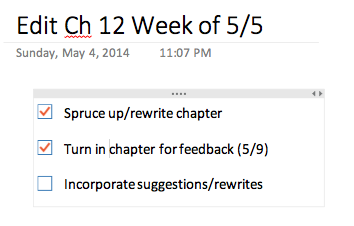Bob Ross on Editing: “Don’t Fiddle It To Death”

I love watching The Joy of Painting at the end of a long day. Bob Ross is relaxing, entertaining, and has much wisdom to offer artists of all stripes. Near completion of a painting, one of his favorite bits of advice is, “Now, don’t fiddle this to death.” You risk ruining your happy little trees by endlessly tweaking and fussing over them.
The same thing applies when we writers put on our editing caps. We second-guess word choice and sentence structure. We worry whether we’re doing something the best way it could be done. Taken too far, these reasonable concerns become paralyzing self-doubt. Endless edits and re-edits are a hamster wheel many writers are too afraid to step out of. As a result, we never see their work.
This is especially true of editing novel-length works. There’s no such thing as one quick pass and I’m done!– not unless you’re deluding yourself. You must cut scenes, draft new scenes, then smooth out all the resulting rough edges and continuity errors. So at minimum, you need one pass to cement the scenes in the order they’ll occur, then a second pass to pretty them up and make everything make sense. (This doesn’t count editorial or beta-reader passes. Incorporating recommended edits may constitute yet another pass.)
Inevitably, you’ll find things to change on your “final” pass. Sanity-check that pass- oops! More changes. If you’re not careful, you can easily end up in that hamster wheel. After this pass, I’ll be done. No wait, one more… until the words on the page disgust you, and you can’t remember how to spell “the.” You run the risk of eviscerating perfectly good scenes, simply because you’re sick of looking at them.
Perfect is the enemy of good. At some point you have to put down the sandpaper, throw the red pen away, tie on a bow and hope for the best.
How do you know when enough’s enough? The answer’s different for everyone, but in my experience, designating cutoff points keeps me from over-obsessing over any one passage. On the first editing pass for my novel, I’ve imposed a one-week deadline per chapter (this was when I was working a full-time day job; the time limit may change as I transition to full-time writing). However good I can make it in one week, that’s good enough. I know I’ll be back on another pass, and the imposed separation will help me return to the chapter with fresh eyes.
Of course, shit happens. Maybe I had to break one chapter into two and add a whole bunch of new material, or my wonderful beta-reader-slash-spouse isn’t available to provide feedback for a few days. I don’t sweat it, because sometimes, the opposite happens and swings me back ahead of schedule. Early in editing, for instance, I crunched my first five chapters into three. Instant two-week buffer!
To track editing progress, I abandon the word-count spreadsheet, since my daily word count’s often negative at this stage. OneNote is now a free download for Mac (yay!!), so I use it instead, creating a new page for each week.
 Nothing fancy, but I adore OneNote for to-do tracking.
Nothing fancy, but I adore OneNote for to-do tracking.
Happy editing- and don’t fiddle it to death!
What tricks do you use to avoid overkill when editing? Drop me a line and let me know!